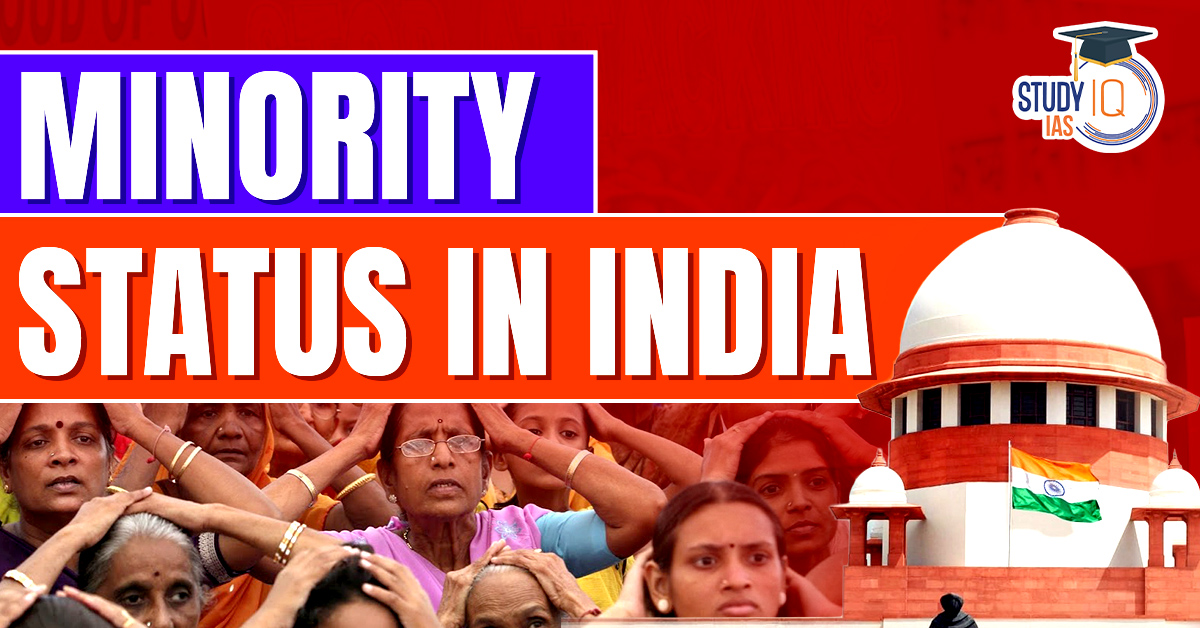Table of Contents
Legal Basis for Minority Status in India
- Article 30(1) of the Indian Constitution: Guarantees “all minorities, whether based on religion or language, the right to establish and administer educational institutions of their choice.”
- National Commission for Minority Educational Institutions (NCMEI) Act, 2004: Empowers the NCMEI to grant minority status certificates to educational institutions.
- Provides a mechanism for minority communities to apply for recognition and address grievances related to minority rights.
Eligibility Criteria
- Religious or Linguistic Minority: The institution must be established and administered by a community that is recognized as a minority, either religious or linguistic, in the specific state where the institution is located.
- Recognition of Minorities: At the national level, the following religious communities are recognized as minorities under the National Commission for Minorities (NCM) Act, 1992:
- Muslims
- Christians
- Sikhs
- Buddhists
- Parsis (Zoroastrians)
- Jains (added in 2014)
- State-Specific Recognition: Minority status is determined at the state level, meaning a community may be a minority in one state but not in another.
- Eg., Tamils in Maharashtra or Kannadigas in Tamil Nadu can claim linguistic minority status in those states.
- Proof of Minority Status: The institution must demonstrate that it has been established by individuals belonging to a minority community.
- The governing body or management must primarily consist of members from the minority community.
Conditions for Grant of Recognition to Minority Educational Institutions
- Primary Objective: The educational agency’s byelaws must explicitly state that the institution primarily aims to serve the interests of the minority community it represents.
- No Religious Compulsion: The institution must not force students or employees to participate in any religious activities.
- Compliance with Laws: The institution must adhere to general laws applicable to educational institutions.
- No Financial Exploitation: The institution must not misuse its minority status for financial gains.
- Fee Regulation: Fees charged by the institution must align with those prescribed by the relevant competent authority.
- Teacher Appointments: Teachers must be appointed based on qualifications set by the appropriate statutory authority.
- Regulatory Compliance: All academic, administrative, and financial matters must follow rules and regulations set by respective statutory bodies.
- Promote Harmony: The institution must not engage in activities that disrupt communal or social harmony.
- Seat Allocation: 50 percent of seats allocated for minority students must be equally divided between ‘free’ and ‘payment’ categories.
Rights and Benefits of Minority Institutions
- Autonomy in Administration: Greater freedom in managing admission policies, curriculum, and staff appointments.
- Protection from Government Interference: The government cannot interfere with the management of minority institutions unless it is necessary to ensure educational standards.
- Exemption from Certain Laws: Minority institutions are exempt from certain provisions of laws like the Right to Education (RTE) Act, 2009, particularly regarding admissions.
Key Judgments Related to Minority Institutions
- M.A. Pai Foundation Case (2002): Clarified the rights of minority institutions to administer their institutions without undue interference.
- Pramati Educational & Cultural Trust v. Union of India (2014): Held that minority institutions are not bound by the RTE Act’s 25% reservation mandate.


 Research Infrastructure in India for its...
Research Infrastructure in India for its...
 Maternal Mortality Rate in India, State ...
Maternal Mortality Rate in India, State ...
 Reservation in Private Universities, Nee...
Reservation in Private Universities, Nee...





















